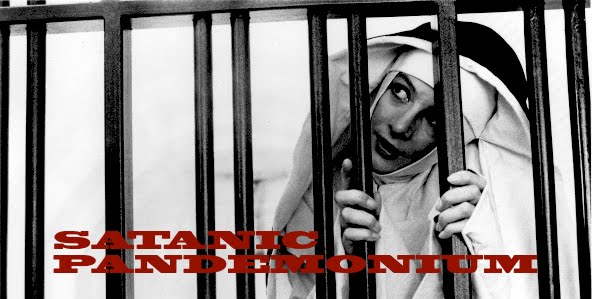
Victor Erice, 1973
Starring: Fernando Fernan Gomez, Teresa Gimpera, Ana Torrent, Isabel Telleria
In rural Spain, during the
'40s and after the Spanish civil war, a young girl named Ana catches a
traveling cinema showing of Frankenstein
with her older sister Isabel. The film sticks in Ana's mind and instead of
being terrified by the monster, she is fascinated by him. Her sister plants
further seeds in her head by telling her the monster is a spirit that can be
summoned. Ana, young as she is, stumbles confusedly between fantasy and reality,
particularly because Ana and Isabel’s home life is strained. She finds an
injured, escaped prisoner, whom she understands to be the monster. She
wordlessly feeds and protects him. Unfortunately, he is captured and shot by
the police and when Ana discovers the monster gone and fresh blood on the
ground, she runs away in horror…
Spirit of the Beehive is one of those films like Valerie and Her Week of Wonders that is difficult to totally wrap your brain around on the first, second, or possibly even third viewing. It belongs in some obscure group of films that are so magical and dreamlike it would be easy to say – on a superficial level – that nothing really happens. But Beehive does take us on an extensive, frequently painful, emotional journey and, though this is rarely done well on film, captures the experience solely through the eyes of a child. I think it richly deserves to be known as one of the greatest Spanish films of all time and comes highly recommended.
Spirit of the Beehive is a risky film with little action and less dialogue, but somehow it works. Ana's inner world comes rushing forth and when language is used – especially in the second half of the film – it is often a jarring experience that draws her back into normal life. Director Victor Erice also flawlessly incorporates the "film within a film" technique, using the plot of Frankenstein, its monster, dialogue, and many scenes from the film. These scenes help to create a lingering, pervasive air of dread and dissatisfaction in the film. Though we only see brief moments of Ana’s parents' lives, they seem to sadly or angrily go through a mundane daily routine, their passions and lives permanently crippled by the previous civil war. Ana’s father works with and writes about his beehive and their mother writes letters to a faraway lover.
Beehive
benefits from some very strong central performances, namely from little Ana and
Isabel. Ana Torrent was just seven years old at the time of filming and gives
the most incredible child performance I’ve ever seen. She went onto to an
interesting career, which includes the delightful Tesis, Cria Cuervos, The Tulse Luper Suitcases, and more. Though Torrent
is the centerpiece of the film, Isabel Telleria in her only role as Ana’s
sister, Fernando Fernán Gómez (All About My Mother) and Teresa Gimpera (A Brief Vacation) as the parents, and Jose Villasante (Crypt of the Vampire) as the “monster”
give excellent side performances.
The feeling of dread and fear that pervades the film is mostly a political
dread, no doubt inspired by Franco’s fascist Spain, the staggering weight of
daily monotony is crushing. Beehive
was made during the end of Franco's reign, at a time when it was still difficult
to make a film about anything overtly political. Erice manages to get his
message across through a network of visual and written symbols. Interestingly,
the beautiful images were filmed by cinematographer Luis Cuadrado, who was going
blind at the time. The more I think about Beehive,
the more it seems like an amazing coincidence, where different elements just
happened to come together at the right moment, despite everything working
against the film.
Though I would highly recommend catching this film in a theatre for your first viewing, it doesn't get shown very often. Luckily there is a beautiful double-disc released by Criterion. There is a new digital transfer, new English subtitles, interviews and a documentary, The Footprints of a Spirit. While this is not a horror film per say, I think it is useful for horror fans to watch. Frankenstein is intrinsic to its plot and it is a powerful example of how horror can be used within other genres to create a unique, but powerful vision.
Though I would highly recommend catching this film in a theatre for your first viewing, it doesn't get shown very often. Luckily there is a beautiful double-disc released by Criterion. There is a new digital transfer, new English subtitles, interviews and a documentary, The Footprints of a Spirit. While this is not a horror film per say, I think it is useful for horror fans to watch. Frankenstein is intrinsic to its plot and it is a powerful example of how horror can be used within other genres to create a unique, but powerful vision.

No comments:
Post a Comment